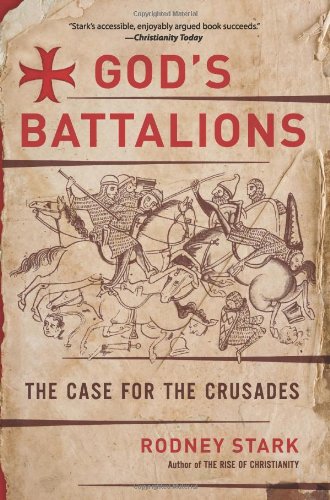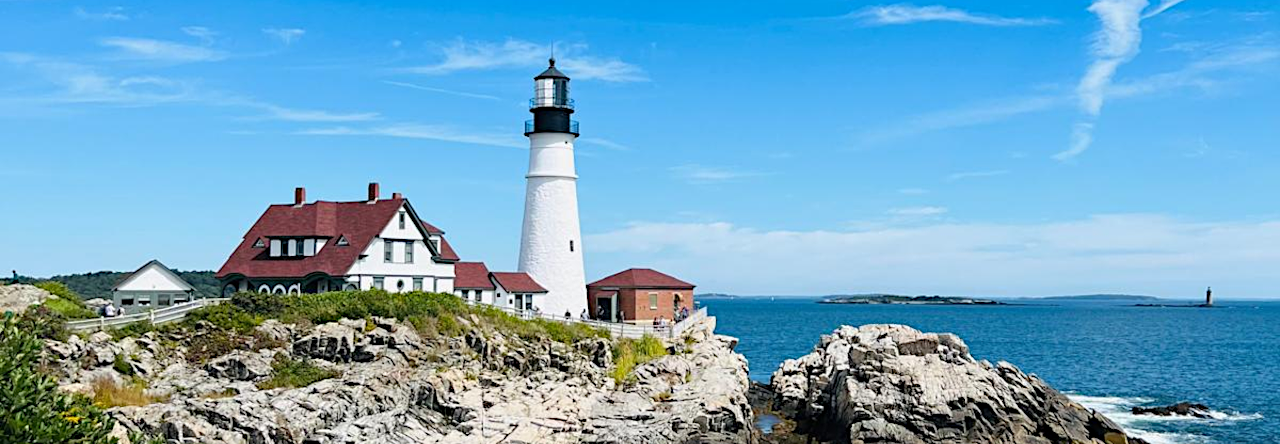 The kids’ commie professor had it all wrong about the Crusades and so do many of the people who teach about the crusades in many educational settings. I am currently reading a very good book titled Discovering God by Rodney Stark and I will get to my thoughts on that in a later post, but an article titled The Real History of the Crusades by Thomas F. Madden got me to thinking about another book Stark had written about the Crusades that I liked a lot. It disabused me of many wrong ideas I held about the Crusades. It talks about how the medieval Crusades were a defensive response to attacks by Muslim invaders bent on overrunning Europe rather than an unprovoked invasion of innocent Muslim countries by imperialistic Christians seeking fame and fortune. Stark’s book is titled God’s Battalions, the Case for the Crusades and describes the events with attention to detail, capturing the true nature of the Crusades and the motivations behind them.
The kids’ commie professor had it all wrong about the Crusades and so do many of the people who teach about the crusades in many educational settings. I am currently reading a very good book titled Discovering God by Rodney Stark and I will get to my thoughts on that in a later post, but an article titled The Real History of the Crusades by Thomas F. Madden got me to thinking about another book Stark had written about the Crusades that I liked a lot. It disabused me of many wrong ideas I held about the Crusades. It talks about how the medieval Crusades were a defensive response to attacks by Muslim invaders bent on overrunning Europe rather than an unprovoked invasion of innocent Muslim countries by imperialistic Christians seeking fame and fortune. Stark’s book is titled God’s Battalions, the Case for the Crusades and describes the events with attention to detail, capturing the true nature of the Crusades and the motivations behind them.
In his article, Madden explains the true nature of the Crusades very well. I highly recommend reading the entire article as well as Stark’s book on the subject, but this excerpt captures his thesis quite well:
Misconceptions about the Crusades are all too common. The Crusades are generally portrayed as a series of holy wars against Islam led by power-mad popes and fought by religious fanatics. They are supposed to have been the epitome of self-righteousness and intolerance, a black stain on the history of the Catholic Church in particular and Western civilization in general. A breed of proto-imperialists, the Crusaders introduced Western aggression to the peaceful Middle East and then deformed the enlightened Muslim culture, leaving it in ruins. For variation on this theme, one need not look far. See, for example, Steven Runciman’s famous three-volume epic, History of the Crusades, or the BBC/A&E documentary, The Crusades, hosted by Terry Jones. Both are terrible history yet wonderfully entertaining.
So what is the truth about the Crusades? Scholars are still working some of that out. But much can already by said with certainty. For starters, the Crusades to the East were in every way defensive wars. They were a direct response to Muslim aggression — an attempt to turn back or defend against Muslim conquests of Christian lands.
Christians in the eleventh century were not paranoid fanatics. Muslims really were gunning for them. While Muslims can be peaceful, Islam was born in war and grew the same way. From the time of Mohammed, the means of Muslim expansion was always the sword. Muslim thought divides the world into two spheres, the Abode of Islam and the Abode of War. Christianity — and for that matter any other non-Muslim religion — has no abode. Christians and Jews can be tolerated within a Muslim state under Muslim rule. But, in traditional Islam, Christian and Jewish states must be destroyed and their lands conquered. When Mohammed was waging war against Mecca in the seventh century, Christianity was the dominant religion of power and wealth. As the faith of the Roman Empire, it spanned the entire Mediterranean, including the Middle East, where it was born. The Christian world, therefore, was a prime target for the earliest caliphs, and it would remain so for Muslim leaders for the next thousand years.
Betty Blonde #149 – 02/10/2009

Click here or on the image to see full size strip.
